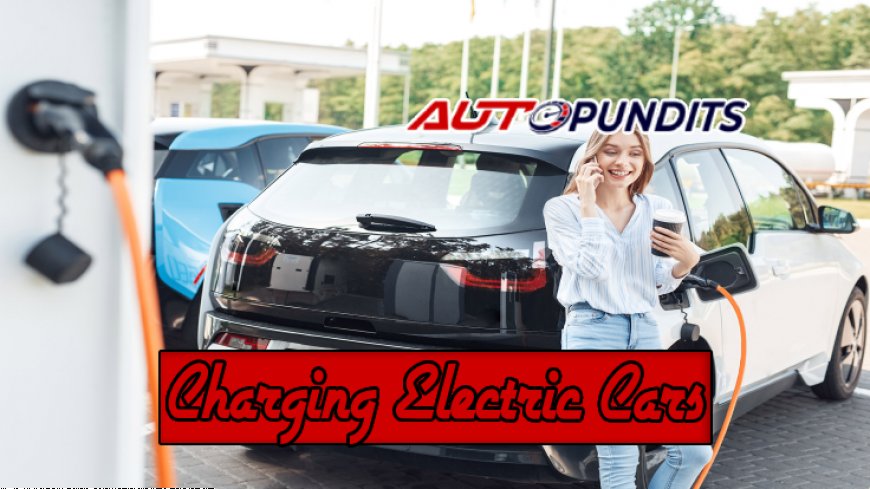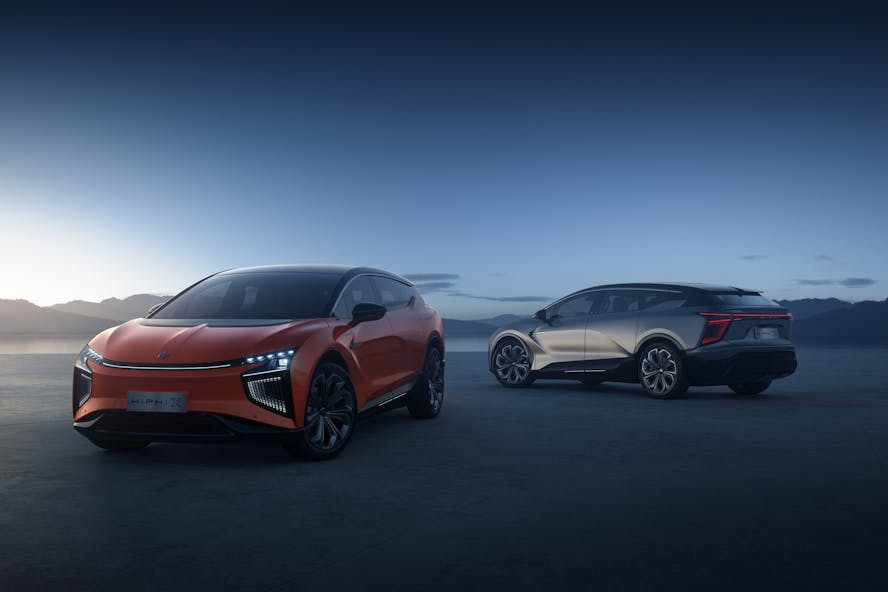Charging Electric Cars: A Simpler Process Than You Think
Busting myths around charging electric cars. Find out how it's easier and more convenient than you think!

Charging electric cars has often been depicted as an arduous, inconvenient process. However, this could not be further from the truth. This article will bust the common myths surrounding the charging of electric cars, shedding light on the actual simplicity and convenience of the process. Come along as we delve into the mechanics of charging electric cars, demystifying the seeming complexity that has been attached to this critical aspect of electric vehicle (EV) ownership.
Unraveling the Simplicity of Charging Electric Cars
As the world gravitates towards more sustainable forms of transportation, understanding how to charge electric cars becomes essential for prospective EV owners.
Table of Contents
- Understanding the Basics of Charging Electric Cars
- Home Charging Vs. Public Charging
- Types of Charging: Trickle, Fast, and Rapid
- Charging Times For Popular Electric Vehicles
- How Much Does Charging An Electric Car Cost?
- The Convenience Factor
Understanding the Basics of Charging Electric Cars

At its core, charging an electric vehicle isn't drastically different from charging your mobile phone. You plug it in, wait for the battery to gain its juice, and then you're ready to go. Yet, there's a level of depth under the surface as electric cars use larger, more powerful batteries. They require a higher voltage and a steady circuit to recharge optimally. Besides, factors like the car's battery capacity, the charger's electricity flow rate, and the existing amount of battery charge play a role.
Anatomy of an Electric Car Charger
An electric car charger, officially known as Electric Vehicle Supply Equipment (EVSE), essentially provides a conduit for safe electrical power transfer from the source to the vehicle's battery. It communicates with the car, ensuring the right current flow for efficient, safe charging.
Home Charging Vs. Public Charging
:max_bytes(150000):strip_icc()/Home-vs-Public-EV-Charging-39fa5bfd9c1f4f179e8d28a9e5d2c77d.jpg)
At first glance, home charging and public charging might seem similar - they both involve plugging in the vehicle and waiting. However, key differences exist between these two options in terms of charge rate, convenience, and cost.
Home Charging
Home charging, as the name suggests, simply means charging your vehicle from the comfort of your own home. It offers unparalleled convenience as you can plug your vehicle in overnight and wake up to a fully powered EV. Most EV owners lean towards this option for its ease and simplicity.
- Pros: Convenient, manageable costs, no waiting or queues.
- Cons: May require initial investment in a home charging station, slower charging rates compared to some public options.
Public Charging
Public charging involves utilizing chargers available in public locations like malls, workplaces, public parks, etc. While public chargers often offer faster charging speeds, they might not always be as convenient as home chargers.
- Pros: Potentially faster, wider accessibility outside of home, emergency options.
- Cons: Varying costs, might have to wait depending on availability and demand.
Types of Charging: Trickle, Fast, and Rapid
Whether it's at home or a public station, charging can essentially be categorized into three major types based on current delivery speed - trickle, fast, and rapid.
Trickle Charging
Trickle Charging is the slowest form of charging, usually done with a standard 3-pin plug at home. While it's not as rapid as other methods, it's handy for overnight charging.
Fast Charging
Stepping up the speed, Fast Charging is the next level, usually found in homes with dedicated EVSE or public charging stations. This method is significantly quicker than Trickle Charging.
Rapid Charging
Rapid Charging, as the name suggests, offers the fastest speed, primarily found in commercial or public charging hubs. A rapid charger can take an electric car battery from 0-80% in under an hour.
Charging Times For Popular Electric Vehicles

The charging time can vary widely based on multiple factors, such as the car model, charging method, battery capacity, and the remaining charge. Here are some of the indicative charging times for a few popular electric vehicles:
- Tesla Model 3 Standard Range Plus: Using a home wall charger, it typically takes around 8 hours to fully charge. However, with a Tesla Supercharger, it can get to 80% in about 20 minutes.
- Nissan Leaf: With a home wall charger, it'll take approximately 8 hours to charge completely. In a DC fast-charging station, it can achieve up to 80% in around 40 minutes.
- Chevrolet Bolt: A full charge will take around 10 hours with a home wall charger, or it can get up to 80% in about an hour using a DC fast-charging station.
How Much Does Charging An Electric Car Cost?
![EV charging levels explained [2023 update] | EVBox](https://blog.evbox.com/hs-fs/hubfs/DC%20blog_investment%20strategy%20-%201-min.jpg?width=999&height=678&name=DC%20blog_investment%20strategy%20-%201-min.jpg)
Many potential EV owners often wonder about the cost of charging electric cars. But the good news is that it's usually much more affordable than you'd think. The total cost can be influenced by your electricity tariff, the car's battery size, and the charging speed.
Home Charging Costs
A rough estimate for home charging an electric car on an average electricity tariff during off-peak hours would fall in the range of $0.08 to $0.15 per kWh. This means that for a car with a battery capacity of 60kWh, a full charge at home would cost approximately $4.80 to $9.00.
Public Charging Costs
Public charging stations often charge per hour, and this cost can be significantly higher than home charging, especially if you're utilizing rapid charging options. It can range from $0.20 to $0.50 per kWh, but some stations also offer flat rates for a certain amount of charging time.
The Convenience Factor
One common misconception is that charging electric cars is less convenient than refueling traditional combustion engine vehicles. However, considering the ability to charge at home, often overnight, along with the increasing availability of public charging options, the scales tilt in favor of EVs when it comes to convenience.
Let's take a look at various aspects that showcase the convenience of charging electric cars:
- Overnight Charging: You can conveniently charge your EV overnight at home and wake up to a fully charged vehicle every day. No need for detours to the petrol station.
- 'Refueling' While You Shop: With EV charging stations becoming more common at shopping centers and malls, you can top up your EV while you handle your shopping.
- Reduced Maintenance: EVs generally require less maintenance than traditional vehicles. This means fewer trips to the mechanic, saving both money and time.
In conclusion, charging electric cars is generally straightforward and increasingly convenient. It can involve an initial learning curve, but once you've understod the basics, it's quite a seamless process. So, whether you're an existing EV owner or contemplating getting one, don't let charging concerns deter you. Embrace the future of motoring, and enjoy the peace of mind that comes from lower running costs and a cleaner, greener mode of transport.
What's Your Reaction?


































































